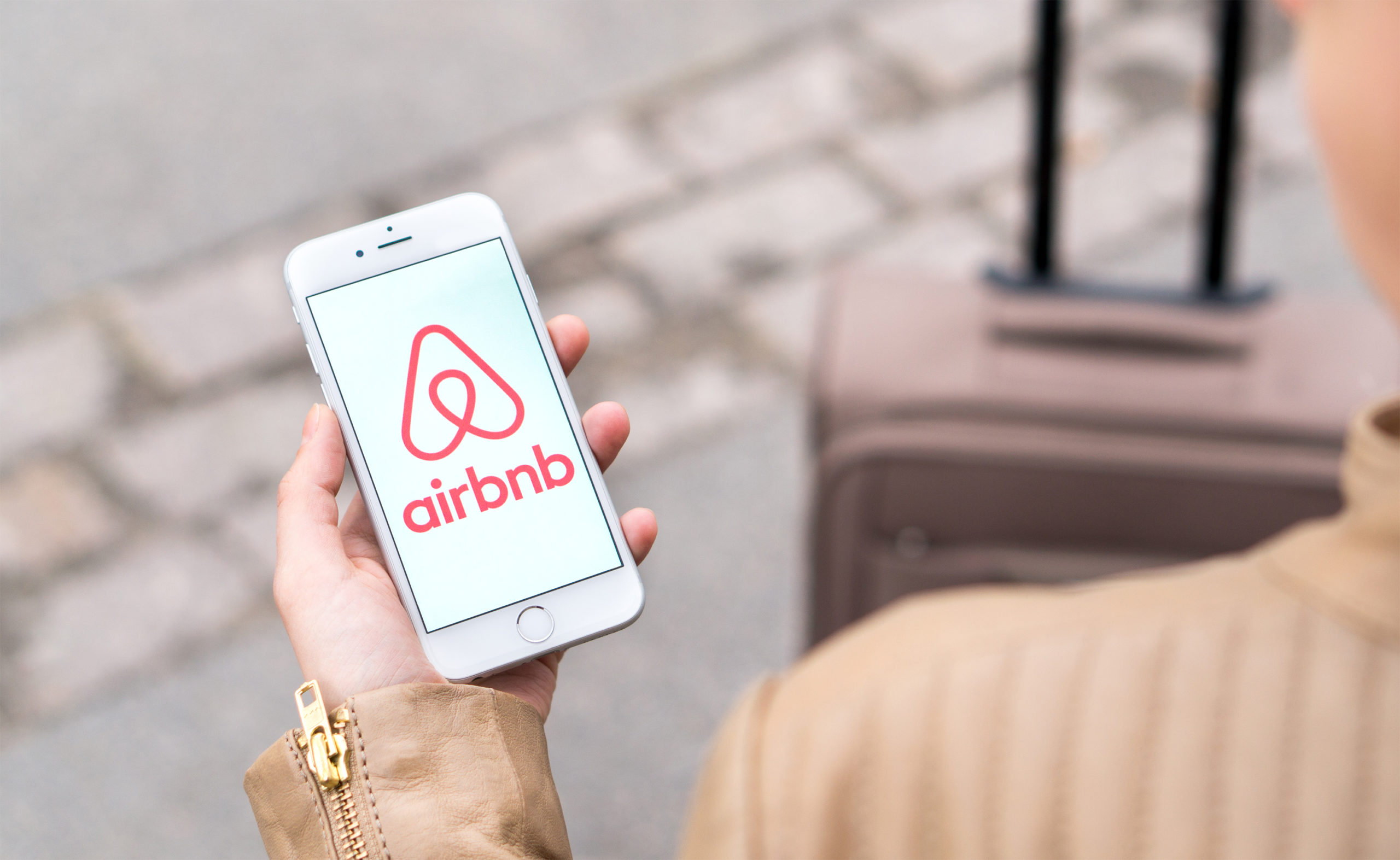Airbnb Taking a Beating During Coronavirus Pandemic

The travel industry is getting hammered by the coronavirus crisis. Business and leisure travel have both declined considerably. And, due to the lack of clarity when things will improve, future bookings are being impacted at an alarming rate. United is flying nearly empty planes, even after grounding a large part of their fleet. They’re not alone, with literally dozens of airlines grounding their entire fleet. The damage isn’t limited to airlines. Marriott has already furloughed 2/3 of their corporate staff. And, Airbnb is nowhere near immune, taking a healthy beating right now.
Airbnb Taking Drastic Steps
I was initially alerted to the specific problems at Airbnb by a piece at The Information. I don’t have a subscription there, so after reading the first paragraph I headed elsewhere to do some digging. The picture isn’t good, which is obvious. But, there were some things I learned along the way that I wasn’t expecting. More on that in a bit.
The obvious part is that many Airbnb “hosts”, folks who rent out rooms in their homes (or their entire home) are taking a beating. This New York Times piece by Erin Griffith details the hardship that some of these folks are feeling. The article does an excellent job showing the impact that the drop in travel has on some individuals. Airbnb isn’t a cottage business any longer. There are thousands of property owners worldwide depending on the bookings their platform brings.
Unfortunately for them, relief isn’t coming anytime soon. Airbnb has suspended their entire marketing budget, which amounts to $800 million this year. I suspected that Airbnb spent a lot of money on marketing, but that’s a pretty amazing figure. At a high level, it illustrates that even with their growth in popularity, Airbnb believes it still needs to spend a sizable sum of money to keep the customers coming. A decent portion of that spending has to be aimed at generating more bookings for Airbnb hosts. Without that marketing, it stands to reason that even when people start traveling more they may ultimately bypass Airbnb if that marketing message doesn’t hit their inbox or Facebook feed.
Airbnb is uniquely affected by this crisis, in that it doesn’t have the same ability as a Hilton, Hyatt or Marriott to rely on corporate contracts or group business to navigate lean times. Even when leisure travel hasn’t really recovered, the largest companies will have employees flying places to conduct business. Maybe not as much as before the crisis, but it’s likely business travel will rebound before leisure travel will. A big part of the reason hotel owners align themselves with brands like Marriott is the ability of the big brands to fill 60% of their rooms from their global network of customers. It’s starting to look like Airbnb won’t have the engine to support those hosts for a while.
Airbnb Has How Many Employees?
One of the facts I came across was that Airbnb has 7,000 employees worldwide. Keep in mind for a moment that Airbnb doesn’t actually own any hotels. And, the number of rooms they have under management pales in comparison to a brand like Marriott. And yet, Marriott has roughly 4,000 employees at their corporate office. They have support structure elsewhere in the world as well. 7,000 Airbnb employees just strikes me as a very big number. I’m not an investor in Airbnb, nor do I have any inside knowledge of their structure. But, as someone who has spent 30 years in the hospitality industry and a decade investing in startups, that number seems heavy. If they truly had 7,000 full-time employees when the COVID-19 crisis started, I can’t imagine they’ll have near that many when it’s over.
The Final Two Pennies
Airbnb appears to have a pretty sizable corporate structure. They can only make money when selling services on their platform, whether that’s a room or a tour/experience to a customer. They get a slice of each of those transactions, but only when they happen. This model isn’t drastically different than hotels. But, my best guess here is that hotels scale much better at a corporate level. An individual hotel owner can bring hundreds of rooms to a chain’s global distribution system, sometimes even hundreds of hotels. Airbnb’s process requires so many more folks on both sides of their marketplace (homeowners and guests looking to rent those homes).
A soft economy may lead to plenty more supply of rooms/homes for a platform like Airbnb. And, to some degree, they’re a bit more agnostic to the rate customers are charging than a hotel owner. They need volume to drive their platform and to keep paying all the staff and marketing expense.
Up until a couple of months ago, that engine was running fast, picking up speed on the downhill towards an IPO. They’re market cap was higher than Hyatt, a hotel chain with actual assets worth millions of dollars. Airbnb isn’t going away. But, I think it’s going to look very different when this crisis over.
Did you enjoy this post? Please share it! There’s plenty of ways to do that below.
You can also follow me on Twitter, Facebook and Instagram.
And, I hope you’ll check out my podcast, Miles To Go. We cover the latest travel news, tips and tricks every week so you can save money while you travel better. From Disney to Dubai, San Francisco to Sydney, American Airlines to WestJet, we’ve got you covered!
Featured image by TeroVesalainen/bigstockphoto

I feel bad for the employees. As to the company, well… you’re a super nice guy Ed, sometimes maybe even too nice. Airbnb is fine if everything works perfectly but their treatment of guests in dispute situations is legendarily bad. They make cable companies look like sweethearts by comparison. If Airbnb sinks, maybe a company that’s more customer friendly will move to the forefront of the industry, because Airbnb really needs to go.
Christian, I was focusing more on the business equation here, and my surprise regarding their head count. I am truly not a fan of Airbnb as a customer. I have serious trust issues with them based on the experience of others. It would take a lot for me to book an Airbnb.
This is really sad. 🙁 Even here in the Philippines, employees, especially those in the tourism industry are very much affected by the COVID-19 pandemic. I just hope this crisis ends soon.
Jemi, I sure hope it ends soon, too!